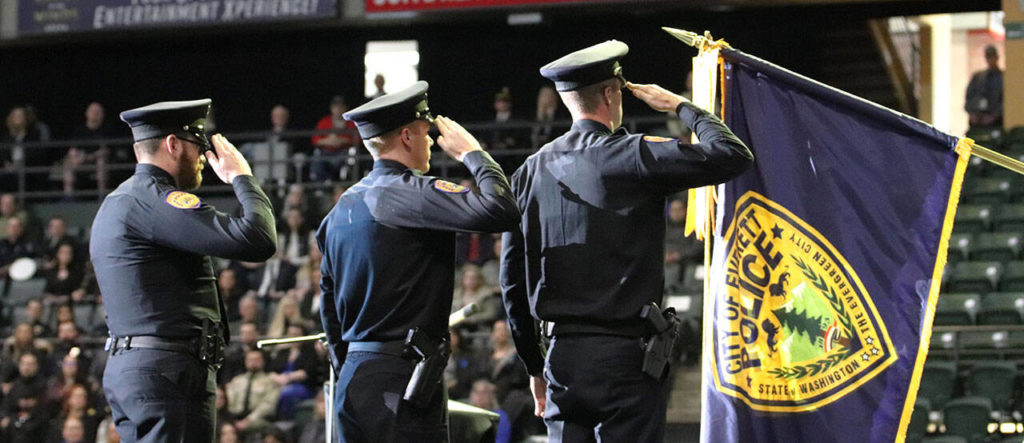By The Herald Editorial Board
An eventful year prompted a range of editorials on local, state and national issues, including the following:
Keep ‘Mockingbird’ on Mukilteo ninth-graders’ list (Jan. 18): After review by a Mukilteo School District curriculum committee, a recommendation was made to the school board to remove Harper Lee’s “To Kill A Mockingbird” from a list of required reading for ninth graders but keep it as an approved novel for use in classrooms, because of nearly 50 instances of the n-word, its focus on “white saviorhood” and marginalized characters of color.
The criticisms were valid, but the remedy missed an opportunity.
“The district’s curriculum panel has sought a reasoned middle path, one that respects the concerns of parents, teachers and students, yet also recognizes the dangers of outright censorship. The real problem, however, lies not with the choice of books but with a ‘required reading’ list that places too much expectation on one book for each grade level.
The editorial board suggested offering a choice of books — including “Mockingbird” — on subjects to encourage classroom discussion.
Update: In what board members called a difficult decision, the book was removed from the required reading list but remains as an approved novel for classroom use.
Transportation plan can move Washington ahead (Feb. 13): With little opportunity for Republican lawmakers to participate as it was drafted, state Democratic lawmakers — including new Transportation committee chair Sen. Marko Liias, released a proposed 16-year, $16.8 billion transportation budget. Locally, the plan included funding for the U.S. 2 trestle, I-5’s interchange with Highway 529 in Marysville and expansion of Community Transit’s Swift bus system.
“Importantly, the package also continues to refocus attention on green infrastructure, including transit and its electrification and pedestrian and bicycle projects, making more than $300 million in investments in bike and pedestrian safety projects and programs across the state and another $284 million for public transit.”
Update: Move Ahead Washington was passed by the Legislature and signed into law in late March.
Give last captured Salish Sea orca shot to return (March 13): Tokitae — better known as “Lolita” but also as Sk’aliCh’elh-tenaut by members of the Lummi Nation — a 56-year-old killer whale captured and taken from Whidbey Island’s Penn Cove in 1970 and kept since then at a Florida aquarium, may have an opportunity to return to her home waters, with a change in the aquarium’s ownership.
“But the path home for Sk’aliCh’elh-tenaut is more uncertain, primarily because of her health. And her release into the wild — because of her age, her health and more than 50 years of being fed and cared for by humans — is not being entertained by anyone. Her best option is seen as a return to home waters, but under the care of humans. But even that may be too much to hope,” because of concerns that the whale could carry and transmit pathogens or other diseases.
Update: The Miami Seaquarium announced this month that it is “100 percent committed” to efforts to allow Tokitae to retire to a sea pen in Salish Sea waters. Antibiotic treatments were said to be helping to improve her health.
Bullet train study should include other options (March 31): As part of the Legislature’s transportation package, $150 million was set aside for advanced planning of a ultra-high-speed rail line through Western Washington. But noting the cost overruns and delays for a similar bullet train line in California, the editorial board advocates for an earlier plan by two rail experts to upgrade the existing rail line.
For an estimated $9.2 million,”the existing rail line between Vancouver, B.C., and Portland could be upgraded and electrified and would allow high-speed Amtrak service — at up to 110 mph — that would still cut the time between Seattle and Portland and Seattle and Vancouver to two-and-a-half hours and would also serve the same number of passengers” as a bullet train.
Steps to protect public, police will honor officer (April 3): Following the violent death of Everett police officer Dan Rocha in a confrontation with an armed man outside a north Everett coffee shop, Everett Mayor Cassie Franklin called for several steps to be undertaken, including work by state lawmakers and officials to address public safety issues, including laws that allow cities and counties to better address drug addiction and property and nuisance crimes; increased access to behavioral health services; more accountability for violent crimes; and stronger efforts to keep firearms out of the hand of those without legal rights to possess them.
“Legislation, however, is not enough,” the editorial board wrote. “There are responsibilities for each of us to strengthen our communities, participate in our government, look out for our neighbors and reach out to those in need. There would be no better way to honor the memory of Officer Dan Rocha and his sacrifice, than for all to do what they can to protect the community and serve the needs of all.”
Bridging the gap between two days of independence (June 19): For its first observance as a Washington state holiday, Juneteenth — marking June 19, 1865, following the end of the Civil War, when U.S. troops arrived in Galveston, Texas, to issue orders that enforced President Lincoln’s Emancipation Proclamation in the state — the editorial board highlighted a June 29 discussion: Bridging the Gap: A Community Conversation on Juneteenth and the Fourth of July in Edmonds.
“What, to the American slave, is your Fourth of July?” asked newspaper publisher, former slave and abolitionist Fredrick Douglass prior to the Civil War. “I answer; a day that reveals to him, more than all other days in the year, the gross injustice and cruelty to which he is the constant victim.”
“Juneteenth, then,” the editorial board wrote. “can be celebrated for the promise it delivers to make the ideals of the Fourth of July complete, to ensure what was pledged as self-evident in the Declaration of Independence: That all ‘are created equal, that they are endowed by their Creator with certain unalienable Rights, that among these are Life, Liberty and the pursuit of Happiness.’”
Waiting could force a bad choice on dams, salmon (July 5): The release of a report requested by U.S. Sen. Patty Murray, D-Wash., and Gov. Jay Inslee to study the benefits and impacts of removal of four dams on the state’s Lower Snake River, including salmon runs, tribal fishing rights, energy, transportation and agriculture.
“The report commissioned by Murray and Inslee is clear that even in drawing the conclusion that removing the dams offers the best hope for survival of Snake River salmon, it is not a recommendation for one course of action or another,” the editorial board wrote. “And it further stresses that no dam should be removed until alternatives are in place for their energy, irrigation and transportation benefits. What that commitment provides is assurance and a directive that work needs to begin now to make those transitions with the hope that we won’t come to the point where have to choose between salmon and the light switch.
In a series of editorials — Purchase of hotel as shelter can be effective tool (Aug. 10); Don’t mandate treatment at county shelters (Aug. 21); and Clare’s Place shows success of supportive housing (Sept. 12) — the board supported Snohomish County’s purchase — using federal covid relief funds — of hotels in Everett and Edmonds for use as supportive housing with onsite supervision and access to services such as food assistance, medical aid, behavioral health support, addiction treatment and job training.
Noting the significant investment by taxpayers, the transitional supportive housing “represents a chance for scores of individuals and families to sleep easier under a stable roof with assistance at hand to improve their health and their lives.”
Noted Alison Ahlgrim, the director of program services at Clare’s Place in Everett: “You can’t make progress on anything without a safe, stable place to sleep.”
Dire nursing shortage needs range of efforts, stat! (Dec. 11) In media coverage and in pleas at public meetings, representatives of nurses and of the county’s hospitals addressed a shortage of nurses made worse during the covid pandemic. In discussions with the editorial board, nurses at Providence Everett urged passage of a state law that would mandate specific nurse-to-patient ratios, while representatives of Providence cited a lack of licensed nurses available to hire. Recommending further consideration of ratios, the board also advised state lawmakers to consider increased funding for nursing schools, such as Everett Community College; the state’s participation in a nationwide pact for acceptance of other states’ nursing credentials and better communication and participation among the hospital and nurses regarding staffing committees.
“The hospital’s nurses — having cared for and protected the lives of patients for three years of a devastating pandemic — deserve the community’s admiration but are most deserving of solutions that fairly compensate them and support their emotional and physical health, allowing them to continue work vital to the community.”
Talk to us
> Give us your news tips.
> Send us a letter to the editor.
> More Herald contact information.


























